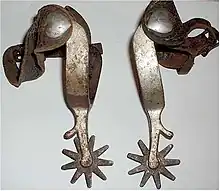আল
Assamese

আল
Etymology
Inherited from Sanskrit আৰা (ārā, “awl”), from Proto-Indo-Aryan *Hā́raH, from Proto-Indo-Iranian *Hā́raH, from Proto-Indo-European *h₁ólos (“awl”).
Pronunciation
- IPA(key): /al/
Declension
Inflection of আল
| Indefinite forms | Definite forms | ||||||||
|---|---|---|---|---|---|---|---|---|---|
| numeral | non-numeral (plural) | ||||||||
| singular | plural | informal | |||||||
| absolutive | আল al |
আলটো altü |
আলকেইটা alkeita |
আলবোৰ albür |
আলবিলাক albilak | ||||
| ergative | আলে ale |
আলটোৱে altüe |
আলকেইটাই alkeitai |
আলবোৰে albüre |
আলবিলাকে albilake | ||||
| accusative | আলক alok |
আলটোক altük |
আলকেইটাক alkeitak |
আলবোৰক albürok |
আলবিলাকক albilakok | ||||
| genitive | আলৰ alor |
আলটোৰ altür |
আলকেইটাৰ alkeitar |
আলবোৰৰ albüror |
আলবিলাকৰ albilakor | ||||
| dative | আললৈ aloloi |
আলটোলৈ altüloi |
আলকেইটালৈ alkeitaloi |
আলবোৰলৈ albüroloi |
আলবিলাকলৈ albilakoloi | ||||
| terminative | আললৈকে aloloike |
আলটোলৈকে altüloike |
আলকেইটালৈকে alkeitaloike |
আলবোৰলৈকে albüroloike |
আলবিলাকলৈকে albilakoloike | ||||
| instrumental | আলেৰে alere |
আলটোৰে altüre |
আলকেইটাৰে alkeitare |
আলবোৰেৰে albürere |
আলবিলাকেৰে albilakere | ||||
| locative | আলত alot |
আলটোত altüt |
আলকেইটাত alkeitat |
আলবোৰত albürot |
আলবিলাকত albilakot | ||||
| Accusative Note: -অক (-ok) is used for animate sense and for emphasis. No case marking otherwise. Dative Note 1: Some speakers use -অলৈ (-oloi)'s variant -অলে (-ole) instead. Dative Note 2: For direct objects -অক (-ok) marks this case instead of -অলৈ (-oloi). Dative Note 3: In some dialects -অক (-ok) or -অত (-ot) marks this case instead of -অলৈ (-oloi). Instrumental Note 1: Alternatively -এদি (-edi) marks this case instead of -এৰে (-ere). Instrumental Note 2: Sometimes -এ (-e) marks this case. Locative Note: The locative suffix is -এ (-e) in some cases. | |||||||||
This article is issued from Wiktionary. The text is licensed under Creative Commons - Attribution - Sharealike. Additional terms may apply for the media files.